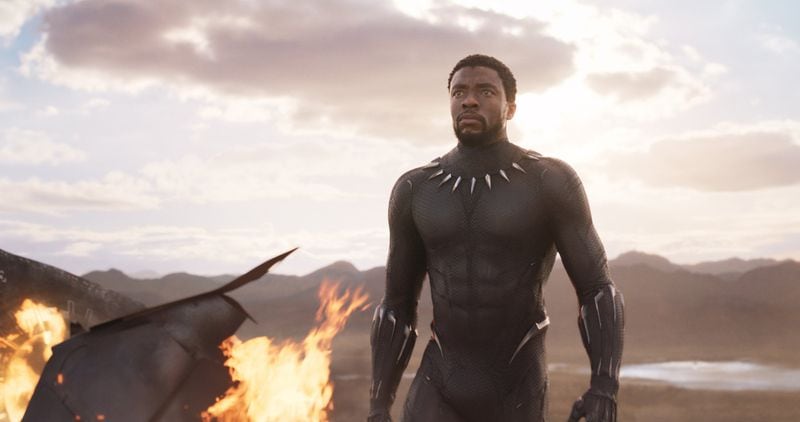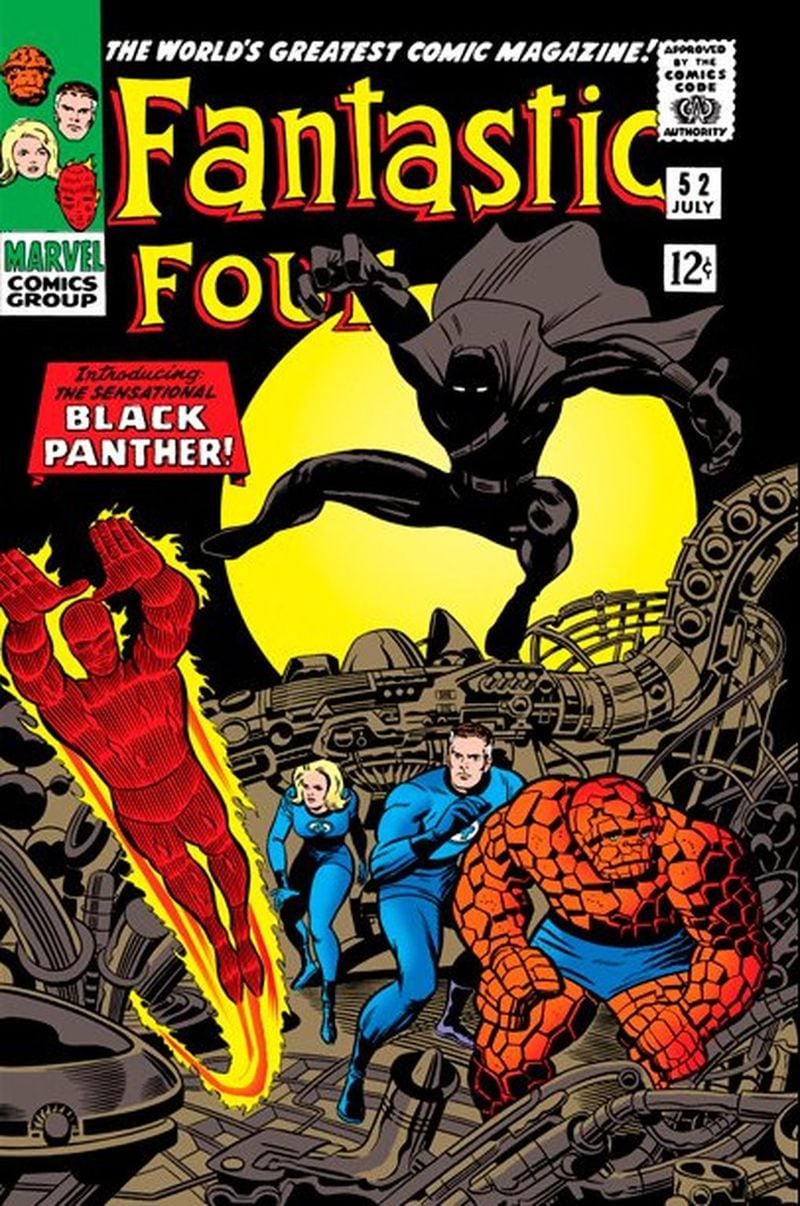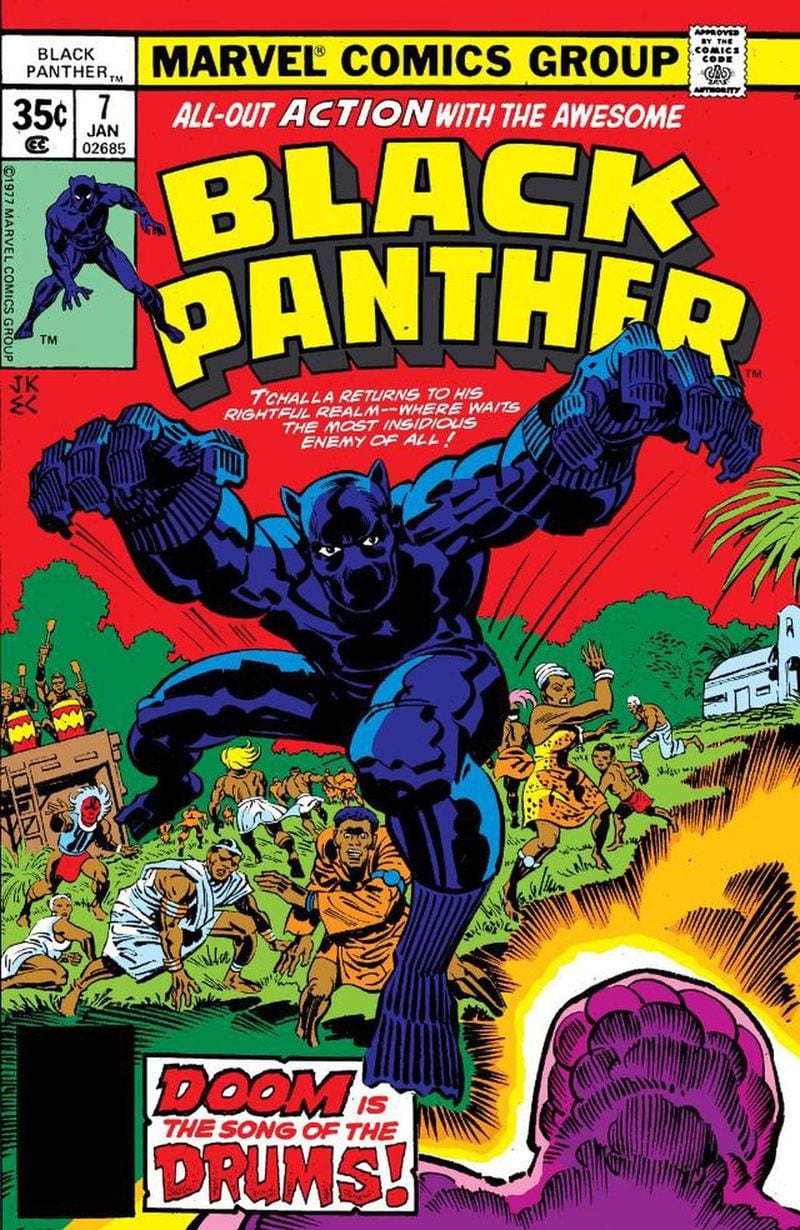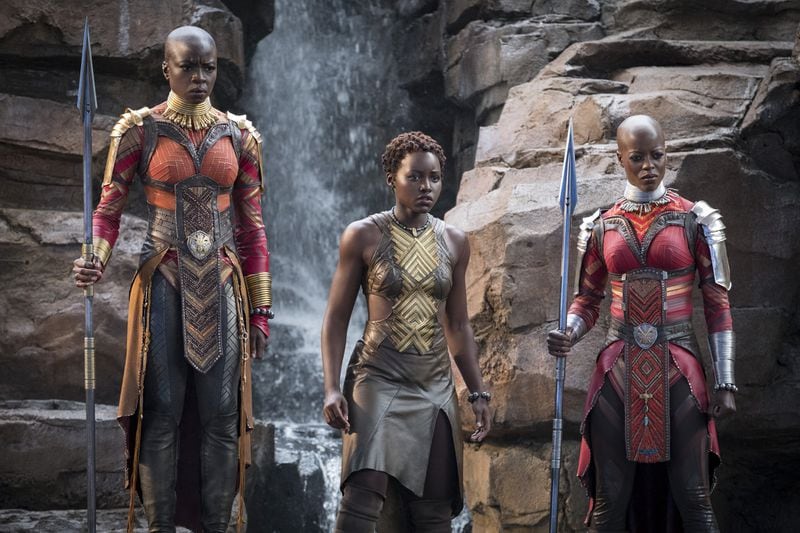Black nerds everywhere are rejoicing as the world is introduced to King T’Challa.
More than 50 years after the comic book character first hit the shelves, T'Challa, his alter ego Black Panther and his African nation of Wakanda are finally arriving on the big screen with the release of Marvel's latest installment on Friday, Feb. 16.
The day isn’t exciting just for black nerds — or blerds, as some call themselves — who’ve read about the character. It’s also a milestone in black culture.
»MORE: Read AJC Sepia’s full Black History Month series
"If they don't see you as a hero, then they'll never see you as a human," said DJ Benhameen, host of FanBros Show, a podcast that calls itself the voice of the urban geek. "Wakanda represents an uncolonized Africa. That is such an unbelievably bold statement to make at any time. And to actually see that on screen … It's huge."
Not only has Wakanda been shielded from colonization, it is also the most technologically advanced nation in the Marvel universe.
Tony Cade, owner of Challenges Games and Comics in North DeKalb Mall — the only black-owned comic store in the Atlanta area — said Wakanda is the fictional "pinnacle of human society."
“That two Jewish guys went out and created Black Panther and Wakanda and created it with this positive mythos, I think is a very important thing,” he said. “And this is something they did in the ’60s before the Black Panther Party.”
»MORE: Oscar Micheaux and the birth of black cinema
Movie fans were first introduced to T’Challa, played by Chadwick Boseman, in 2016’s “Captain America: Civil War.” But comic book readers originally learned of the African king in July 1966, when creators Stan Lee and Jack Kirby introduced him in an installment of The Fantastic Four. The Black Panther Party was formed three months later.
Joeseph P. Illidge, senior editor at the Lion Forge imprint Catalyst Prime in New York, said he was first introduced to the Black Panther character when he was growing up and continued to follow T'challa's story in the 1990s when Christopher Priest began writing the comics.
“What that series (under Priest) did in particular is it turned Black Panther into the smartest man in the room,” Illidge said. “Not only his high intellect but his mastery of tactical strategy — those kind of characteristics are ones that are not usually applied to black characters in American comic books.”
That resonates with self-identified blerds who may not have known many other blacks who, like them, enjoyed reading comics, said Jamie Broadnax, founder of BlackGirlNerds.com, a website described as a "place for women of color with various eccentricities to express themselves freely and embrace who they are."
“For a lot of comic book readers of color, that was the first time they were seeing a person of color that’s a protagonist,” Broadnax said.
»MORE: Before there was a Black Panther, Eartha Kitt purred as Catwoman
Several artists and authors of color, including Illidge and Norcross resident Greg Burnham, cite Black Panther as the inspiration for their work.
Burnham has released two editions of “Tuskegee Heirs,” a science-fiction comic series about young aviators of color.
“People are used to seeing black characters deal with low-level crimes,” he said. “Then in ‘Black Panther,’ I see this man who’s a king of a nation and he’s also a superhero. Truthfully, it’s the kind of thing I want to do at our comic.”
Other than the new movie’s sheer entertainment value, having such strong representation on screen is another thing that makes the film so significant, Broadnax said.
Maryland-based Broadnax said she was pleasantly surprised to learn from movie trailers that the film will feature black women characters, including Wakanda’s female warriors who protect the throne — the Dora Milaje — and T’challa’s technological genius sister, Shuri.
»MORE: Dolemite: The first black super hero?
“Seeing those women step forward in this film, it’s good for all of us,” she said. “Obviously, this is called ‘Black Panther’ and it’s a male protagonist, but this is a story that’s universal.”
That excitement is evident in Atlanta, where dozens of Black Panther screenings and events are taking place this weekend. The film is expected to draw not only children, but entire families to the theater.
“It’s one of the few movies where you get to see a majority black ensemble and it’s not a comedy, it’s not something where we’re playing gangsters,” Cade said. “We’re going to see a movie with an extremely popular cast — well-known talented actors — show us in a positive light. That’s what’s important about this.”
Throughout February, we’ll spotlight a different African-American pioneer in the daily Living section Monday through Thursday and Saturday, and in the Metro section on Fridays and Sundays. Go to myAJC.com/black-history-month for more subscriber exclusives on people, places and organizations that have changed the world, and to see videos on the African-American pioneer featured here each day.
About the Author










